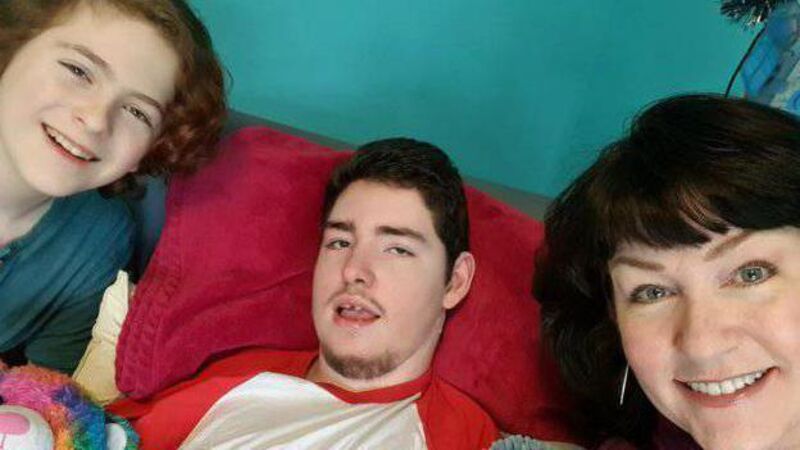Covid-19: Vulnerable families still not offered remote learning

Declan, Brendan and Tracy McGinnis.
Children who have family members at high risk of Covid-19 complications are still not being offered remote learning.
Department of Education guidelines stipulate that only children who are themselves at "very high risk" can be offered remote learning, regardless of whether or not they have family members with underlying conditions.










